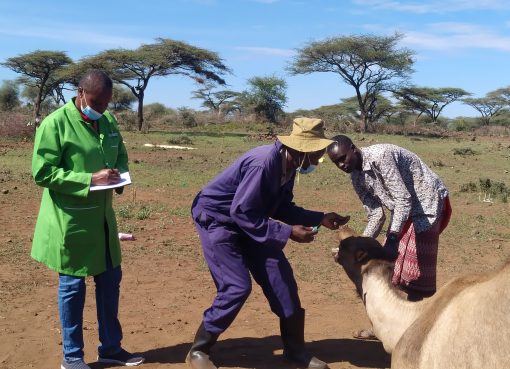The government is committed to streamlining the public relations sector to unlock its full potential through the Institute of Public Relations and Communications Management (IPRAC) Bill.
Ministry of Information, Communications, and the Digital Economy Cabinet Secretary Eliud Owalo says the IPRAC Bill is a’step in the right direction’ and will go a long way in professionalising the public relations and communications industry in Kenya.
CS Owalo says the new bill acknowledges the dynamic, creative, and ever-evolving nature of the PR profession and seeks to provide a regulatory framework that ensures professionalism, ethical conduct, and high standards of practice.

He says the IPRAC bill is a commendable step towards establishing a legal framework for the practice of public relations and communications management in the country.
“The vision to transform into a statutory, self-regulatory institute will enhance the credibility and accountability of the profession, fostering trust among the public and stakeholders alike,” he said.
The Communications CS said this while officially opening this year’s Public Relations Society of Kenya (PRSK) annual summit at the Diamonds Leisure Beach and Golf Resort in Kwale County.
The summit brings together over 600 PR gurus from Kenya, Tanzania, Uganda, Nigeria, Zambia, the United Kingdom, and the United States of America to discuss the latest trends and challenges in the communication field.
The weeklong event dubbed Africa’s largest communication conference is running under the theme ‘Retrospect, Reimagine, and Reposition: Adopting agile PR practices to cope with a rapidly disrupted, fragmented, and polarised world.
Mr. Owalo challenged the PRSK to increase its visibility and impact by actively participating and being influential in national policy decision-making processes.
He says the government is leveraging the advancements in artificial intelligence, data analytics, and social media to improve understanding of public opinion, tailor communications strategies, and enhance the ability to engage with citizens in a more proactive manner.
Owalo noted that while it is the role of the government to stimulate the country’s social, economic, and cultural development for the benefit of its citizens, it is the supportive role of communication that builds trust, promotes transparency, and ensures we engage with the public in meaningful ways.
“Agile yet effective communication is more critical than ever in today’s rapidly evolving and interconnected world of fake news, ChatGPT, and deep fakes,” he said.
He went further: ‘We must all embrace responsive, adaptable, and data-driven public relations and communications practices to address these challenges. We must anticipate and respond to emerging trends, effectively manage crises, and engage with the public authentically and transparently’.
CS Owalo underscored the need to revamp and strengthen the institutional and operational foundations of information and public communication functions in government.
Owalo has called for communication experts to entrench the culture of communication for development, which he said has been ‘the missing link’ in delivering the fast-paced socio-economic prosperity that Kenyans yearn for.
He observed that for decades, the focus of development communication has been under-reporting, misreporting, distortion, and other negatives in the media coverage of the development story, leading to a mismatch between media coverage and the development needs of Kenyans.
He said there is a need to ensure the free flow of information on government policies, projects, and programmes, especially the Bottom-Up Economic Transformation Agenda (BETA) plan as outlined by President William Ruto.
The BETA Plan focuses on Agricultural Transformation and Inclusive Growth; Micro, Small, and Medium Enterprises (MSMEs); Housing and Settlement; Healthcare; and the Digital Superhighway and Creative Industry.
On his part, the president of PRSK, Arik Karani, has called on PR practitioners to embrace artificial intelligence (AI) as a powerful tool to combat the growing threat of widespread misinformation.
Mr. Karani said that artificial intelligence (AI) has the potential to help public relations professionals identify, analyse, and debunk false information more effectively, thereby protecting the integrity of their communications and the trust of their audiences.
“In today’s digital age, misinformation in the form of fake news, ChatGP, and deepfakes is a rapidly evolving and interconnected world that can spread rapidly and have significant consequences for individuals, organisations, and society. However, PR practitioners must leverage AI to increase their capabilities, from data-driven insights for strategic decision-making to crafting personalised and targeted communication,” said Karani.
He says misinformation, which has turned some publicity campaigns into crises, makes it imperative for practitioners to be vigilant against fake news and misrepresentation.
The top PRSK official says while the industry seeks to leverage AI to open new frontiers for creativity, efficiency, and impact, it is lobbying the government to establish industry standards that reflect the principles of accuracy, transparency, and ethical communication.
He says the PRSK, through the Ministry of Information, Communications, and the Digital Economy, has submitted the Institute of Public Relations and Communications Management (IPRAC) bill for cabinet approval.
“This initiative seeks to establish a legal framework for public relations in Kenya, further elevating the industry’s standards,” he said.
By Hussein Abdullahi





